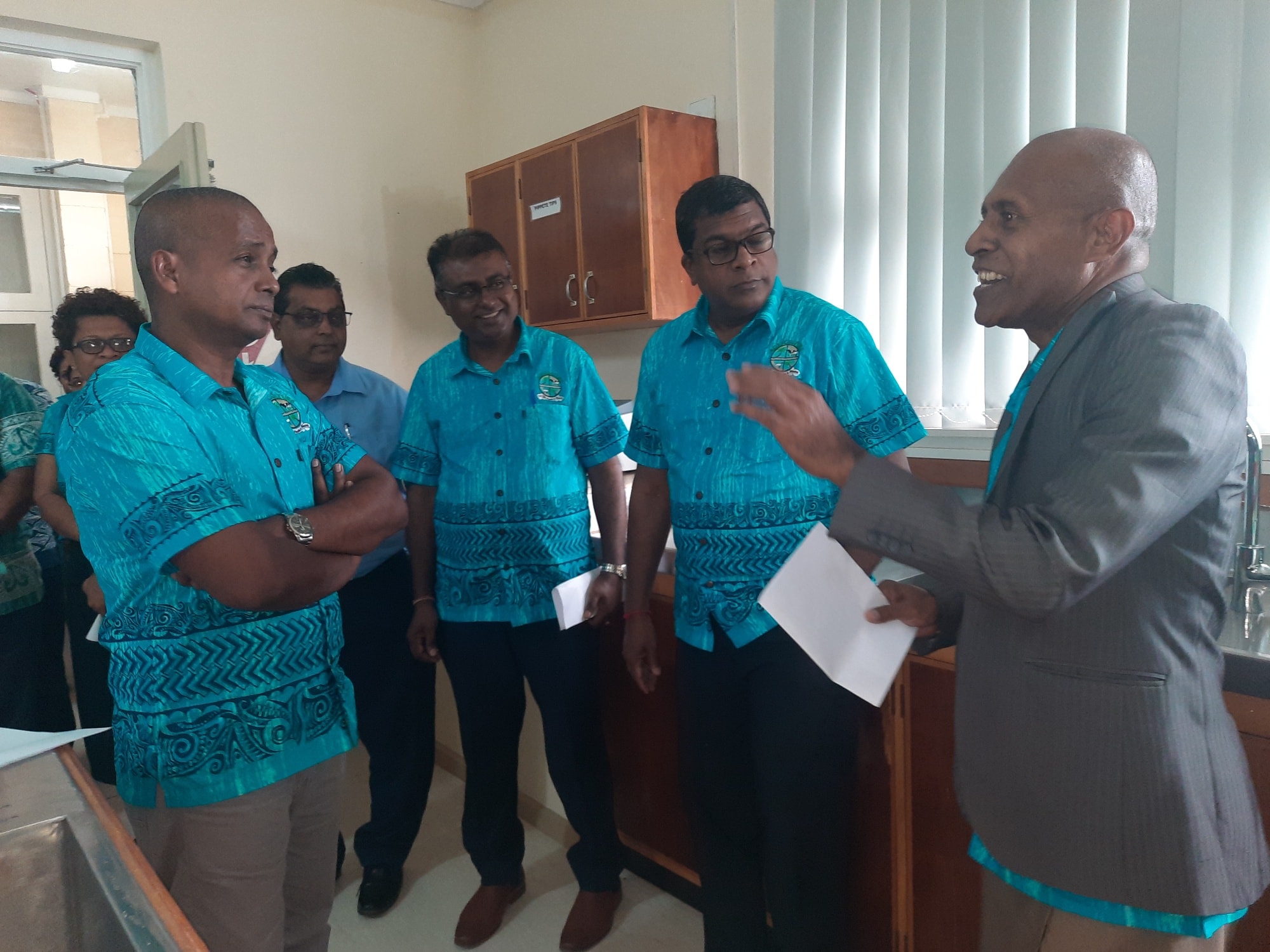Newly Commissioned Molecular Lab to Address Testing Timeliness
July 15, 2022

A state of the art molecular laboratory was officially commissioned earlier this week at the Ministry of Agriculture’s Koronivia Research Station, Nausori.
Speaking at the commissioning of the molecular lab, Minister for Agriculture Hon. Dr. Mahendra Reddy said the vision to establish a new molecular laboratory for fast and accurate diagnosis of pest and disease pathogens had begun in 2018.
"This new lab will greatly assist Ministry researchers in conducting tests on plant pest and disease pathogen occurrence locally instead of sending samples for pest identification overseas."
"To date, all test samples in Fiji has to be sent to either SPC or to Australia or New Zealand for verification. This is of course expensive and time-consuming. But now, with the opening of this new molecular lab, the Ministry can process up to 20 samples at a time, with results available in six to eight hours," said Minister Reddy.
"That is why, in recent years, we have been aggressively investing in our diagnosis facilities, acquiring new, state-of-the-art equipment and recruiting essential qualified workers. Thanks to the Research expertise for the initiative and Government for the funding support," he added.
Minister Reddy extended a special acknowledgement to the Australian Centre for International Agricultural Research (ACIAR) for their close collaboration with The Pacific Community (SPC) and the Ministry of Agriculture for their impressive participation and professional assistance in seeing the establishment and completion of the new lab.
"The Australian organization has continually provided support for Fiji agricultural research and capacity building yet once again provided great assistance in funding the training equipment that are currently installed in the lab that can be used to conduct online training such as molecular diagnosis or plant health clinic locally and regionally as well.
"With the installation of this new lab testing equipment, Fiji’s Ministry of Agriculture will be well equipped with the latest technology to conduct molecular pest diagnosis and management in the country, keep our farm produce safe and healthy, sustain food security and local market consumption and continue with global campaign of exporting agricultural goods to overseas markets," he said.
The new molecular laboratory is designed to bring significant benefits for detection, identification, quantification and successful management of plant pest and diseases by farmers and important stakeholders now and into the future.
These benefits include a faster, reliable and more sensitive alternative Molecular diagnostic methods to traditional immunoassays and culture techniques allowing for the detection of lower amounts of infectious agents and the ability to detect infections earlier than was previously possible.
Additionally, through the use of Polymerase Chain Reaction (PCR) which is particularly useful for the identification of fastidious pathogens; unknown pathogens including detection of known pathogens that require lengthy culturing and bioassay techniques; the detection of multiple and unrelated pathogens in a single PCR (multiplexing); and the identification of the components of mixed infections or disease complexes can be conducted here locally for a fraction of its earlier associated costs.
Currently, real-time PCR is considered gold standard method for detection of plant pathogens, as it allows high sensitivity and specificity in the detection of one or several pathogens in a single assay.
Through the new laboratory, molecular methods are no longer available only to specialized centers but will also play an important role in the diagnosis of common infections seen in ambulatory practice. It is especially practicable for the detection of pathogens that are difficult to cultivate, especially viruses that PCR has become the reference method for.
-Ends-
